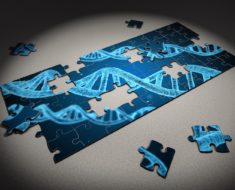Nobel Prize in Physiology and Medicine has been awarded to a trio. The three revolutionary minds are Michael W. Young, Michael Rosgash, and Jeffrey C. Hall. They were honored for their discoveries that were crucial in revealing a molecular mechanism that was crucial in determining the circadian rhythm of the human body. The three scientists are credited with the isolation of a gene from fruit flies that is crucial in living organisms when it comes to rhythm control. The Nobel Peace Prize committee released a statement saying that the three doctors had played an important role in peeking inside the biological clock of a human being. As a result, the three were able to explain how all organisms including humans, animals and plants go about biological rhythm adaptation. Through internal workings that involved fruit flies, the Nobel committee learned that the three doctors had isolated a gene from these organisms to study it. At the end of the project, they realized that the gene had a certain type of protein that could accumulate during the night. As day break approached, the three gentlemen discovered that the protein would degenerate. This discovery arose from decades of research. The aim was to discover the mechanism that is behind the cell clockwork.
This research is important because it sheds light on the biology of multicellular organisms including humans that share the same biological clock as these samples. The committee learned from the findings of these scientists that the inner clock of a human being is made to adapt to the various phases of the day. As a result, the committee also learned this clock is responsible for critical functions in the human body. Some of these functions include metabolism, body temperature, sleep hormone levels as well as behavior. According to the three scientists, they concentrated with fruit flies as they had a gene referred to as period. They realized the gene was responsible for controlling circadian rhythm. Whenever the gene was in action, the insect showed some rhythm. This was no longer the case when the gene was muted. But the main question with this research was the importance of the gene period. They explained that the human body operates on a 24 hour period cycle. Not only does this gene control wakefulness and sleep, but it was also discovered that it controlled physiology. This included body functions such as heart rate alertness, blood pressure, reaction time and body temperature.
Dil Bole Oberoi





